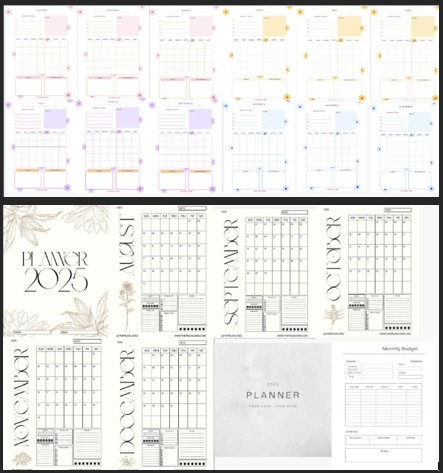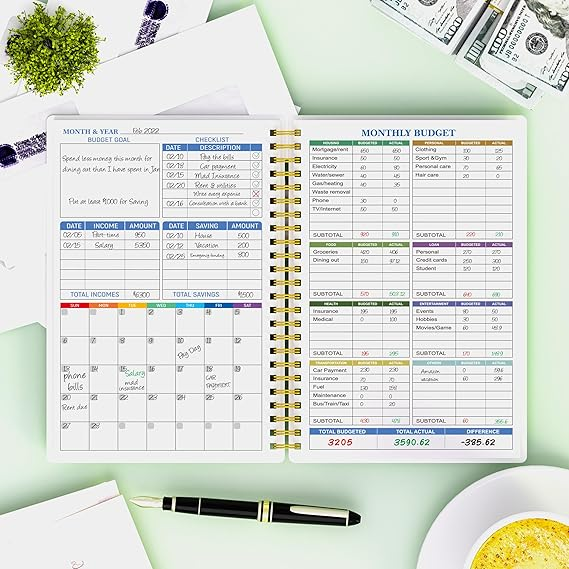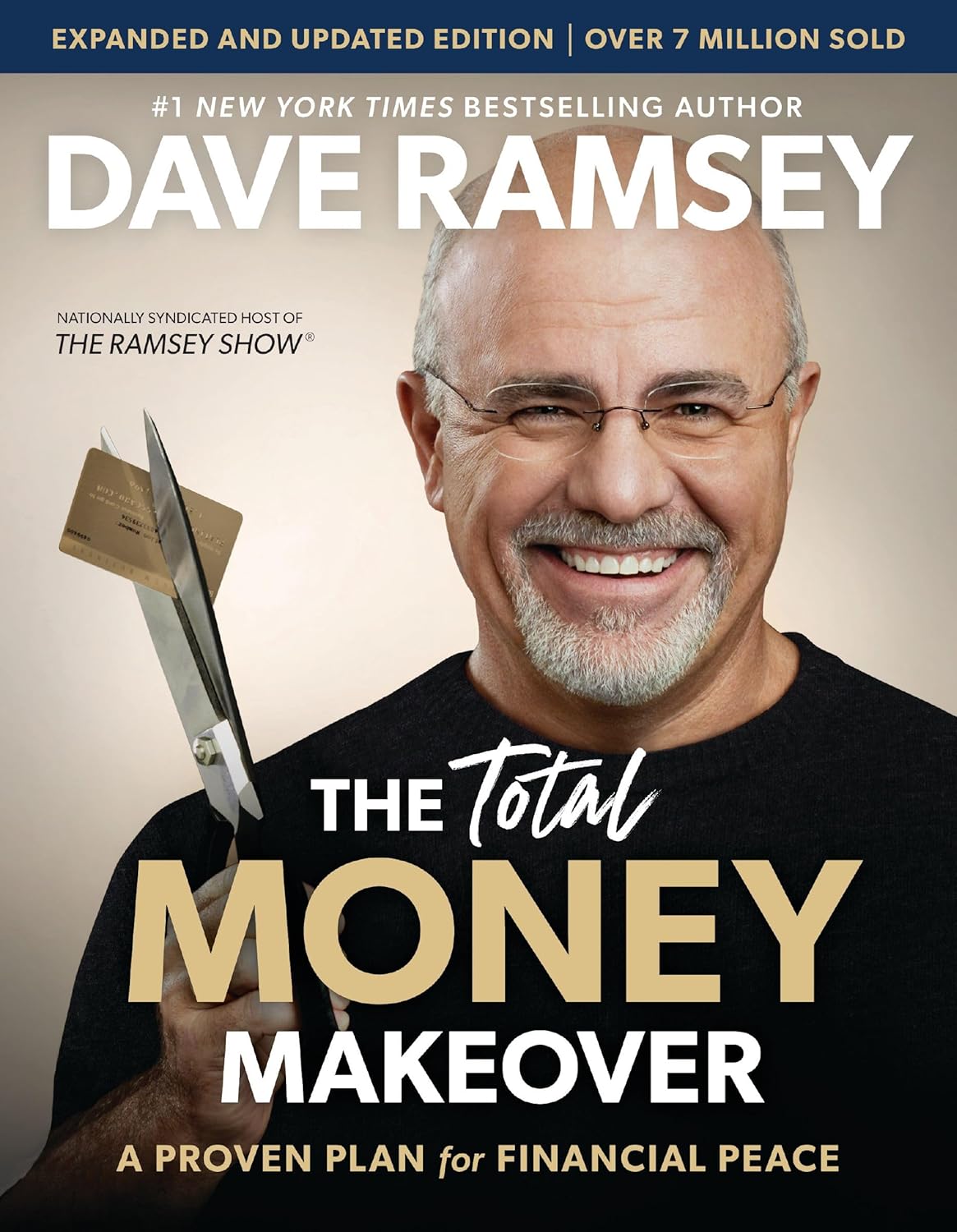If you’re curious about smart ways to stretch your money, you’ve probably heard the name Dave Ramsey. He’s built a reputation on straight talk and simple steps anyone can use, whether you’re drowning in debt or just want to build better habits. His advice isn’t full of fluff; it’s direct, practical, and has helped millions regain control of their finances.
In this post, you’ll discover which of Dave’s best money hacks actually work, along with a few tips on weaving them into daily life. From envelope budgeting to the debt snowball, these proven methods can help you save more, spend less, and get closer to your goals. If you’ve ever wondered how “living like no one else” actually looks, you’re in the right place.
The Total Money Makeover Updated and Expanded: A Proven Plan for Financial Peace Buy Now

Understanding Dave Ramsey’s Money Philosophy
Dave Ramsey’s approach to money is anything but complicated. He cuts out the noise, focusing on simple, repeatable habits. If you tune out the fads and look at what really shifts the way people handle cash, Ramsey’s playbook stands out. His philosophy leans on a few main ideas: kill debt (fast), plan with purpose, and use only the money you actually have. Each of these core ideas challenges the usual way people think about money. They’re also why his hacks work, even if they sometimes feel old-school.
The Debt Snowball Method Explained
Ramsey’s debt snowball method jumps out because it flips common advice upside down. Instead of starting with the highest interest rate, he says to pay off your smallest debts first—no matter the rate. Why would someone suggest that? The answer is all about momentum.
Think of it like knocking over dominoes. Every time you pay off a small debt, you get a quick win. These wins aren’t just good for your bank account; they’re fuel for your motivation. That feeling of progress? It matters. Small wins stack up and build real confidence, helping people keep going when things get tough. According to Ramsey, this shift in mindset is what turns “I’ll never get out of debt” into “Hey, I just might do this.”
Here’s how the debt snowball works:
- List all your debts from smallest to largest, ignoring interest rates for now.
- Pay minimums on everything except the smallest debt.
- Attack the smallest debt with every extra dollar until it’s gone.
- Roll that payment into the next smallest debt, then repeat.
People who’ve used this system often say it’s the first time money felt “winnable.” The psychology behind the method isn’t complicated, but it’s powerful.
Zero-Based Budgeting Simplified
If your budget has ever felt like a shot in the dark, you’re not alone. Dave Ramsey’s answer is zero-based budgeting—giving every dollar a job before the month begins. Instead of wondering where your money went, you decide where it goes, on purpose.
In zero-based budgeting, your income minus your expenses (including savings and debt payments) should equal zero. That doesn’t mean you spend everything; it means you have a plan for every dollar.
Some big benefits of this approach:
- Complete clarity: You know exactly where your money goes.
- Less stress: No more end-of-month surprises.
- Custom fit: Your budget changes with your life—job changes, kids, new expenses.
You literally write down your income, then subtract each planned expense until nothing is left unassigned. If your numbers don’t line up, you tweak your categories before the month starts. This way, your money works for you, and not the other way around.
Why Ramsey Says No to Credit Cards
Ramsey is famous (or infamous) for pushing people to quit credit cards cold turkey. His reasoning is pretty blunt: credit cards make it way too easy to spend money you don’t have. The banks win, and most people lose.
He argues that:
- Credit cards encourage overspending. Research and personal stories alike back this up. Swiping a card doesn’t “feel” like losing real money. Cash or even a debit card draws a hard line.
- Interest and fees can sabotage progress. Even people planning to “pay in full” sometimes carry a balance, costing more over time.
- Rewards points sound good but rarely win in real life. Most people would save more by simply not buying extra or impulse items.
Ramsey’s alternative is a cash-or-debit-only lifestyle:
- You use real money. If it’s not in your account, you can’t buy it.
- You avoid new debt. No new balances, no new stress.
- Spending feels real, which naturally encourages you to pause and consider your choices.
This mindset isn’t about punishment or self-denial; it’s about creating real awareness. For many, ditching credit is the reset button that brings spending back under control.
Dave Ramsey’s Top Money Hacks for Everyday Budgeters
Dave Ramsey’s tips aren’t just for folks dealing with massive debt. They work for anyone who wants their money to go a little further and their stress levels to stay a little lower. These aren’t flashy tricks—they’re tried-and-true moves you can start using now, even if payday feels like it’s always a week away. Ready for quick wins and less worry? Here are some of Ramsey’s go-to money hacks.
The Cash Envelope Budgeting and Envelope Budgeting Apps for Simpler Money Management
The cash envelope system is one of Ramsey’s classics, but you don’t need to carry wads of cash to use it. Envelope budgeting splits your money into clear, physical (or digital) categories: groceries, gas, eating out, fun money. When an envelope is empty, you stop spending in that area. No guessing and no guilt.
Setting up your envelope system is straightforward:
- Identify your spending categories: Start with the basics like food, gas, and extras.
- Set amounts for each envelope: Decide in advance how much cash or digital funds go into each category.
- Track your spending daily or weekly: Once that envelope is empty, you wait until next payday to refill.
If going full cash feels old-fashioned, try apps like GoodBudget or Mvelopes. These let you use the system without dropping bills in paper envelopes. You assign your dollars digitally and watch your “envelopes” in real time. This style of budgeting, on paper or an app, cuts out the temptation of spending money that’s meant for something else.
Sinking Funds for Irregular Expenses
Big, rare expenses have a way of wrecking even the best budgeters. Think holiday gifts, car repairs, or annual insurance bills. Ramsey’s answer is sinking funds—small, regular savings pots for those predictable but irregular hits.
Building up sinking funds takes the panic out of big expenses:
- List out expenses that aren’t monthly: Holidays, birthdays, home repairs, back-to-school costs.
- Break the total into monthly amounts: If you want $600 for Christmas, that’s just $50 a month starting in January.
- Create separate categories in your budget or banking app: You might use a folder, a savings account, or dedicated envelopes.
This habit stops those budget-crushing surprises before they start. Instead of scrambling for extra cash or whipping out a credit card, you’ll have money waiting when needed.
Have an Emergency Plan
This isn’t about being scared—it’s about staying prepared. Dave Ramsey makes it clear: before you try to pay off debt or invest, stash away $1,000 as a starter emergency fund.
Emergencies are real-life problems like:
- Your car breaks down on the highway.
- The water heater goes out in January.
- You have a surprise trip to the ER when the kids get sick.
That $1,000 buffer keeps these moments from blowing up your progress. Store it somewhere safe but accessible, like a basic savings account. Not every unexpected expense is an emergency. Save this fund for real, actual emergencies only. When you use it, focus on replenishing it right away. This is your financial breathing room—use it wisely.
The ‘EveryDollar’ Budgeting App
If pen and paper isn’t your thing, Ramsey’s EveryDollar app is worth a look. This free tool helps you map out your monthly plan and track your spending.
How to make the most of EveryDollar:
- Plan your month ahead of time: List your income and assign every dollar a role, like rent, groceries, savings, or gas.
- Log expenses as you go: Each time you spend, enter it into the matched category. It’s quick and keeps you honest.
- Review and adjust: At the end of the month, see what worked and what needs to change. Swing and a miss on the eating out budget? Tweak it next time.
The app syncs with your phone and gives you a real-time look at where your money stands. If you love crossing to-dos off a list, EveryDollar will fit right into your routine.
Assess Your Spending
You can’t fix what you don’t track. Ramsey talks a lot about making your money “work for you,” and that starts with knowing where it’s actually going.
Here’s a simple exercise:
- For two weeks (or a month if you’re brave), keep every receipt.
- Sort expenses by type: groceries, gas, coffee, dining out, online shopping, household stuff.
- At the end of your test period, total up the numbers for each category.
This isn’t just about guilt—it’s about awareness. You might spot habits that surprise you (daily $8 coffee runs, anyone?) or see easy wins, like cooking at home more often. Honest tracking shines a light on mindless spending and guides smarter decisions moving forward.
Ready to try these small changes? Ramsey’s quick hacks are all about stacking up little wins that lead to bigger changes, making budgeting a little less overwhelming and a lot more doable.
Advanced Strategies for Accelerating Financial Freedom
You’ve tried the basics. Now it’s time to pick up the pace and aim higher. Dave Ramsey’s advanced strategies are all about making big progress, fast. Forget just saving spare change — these moves help you keep more, earn more, and break out of old money habits sooner. Below are some of the best next-level Ramsey hacks for getting serious about financial freedom.
Cutting Expenses with ‘Beans and Rice’ Mentality, Live Well on Less; Learn to Meal Plan
Living frugally doesn’t have to feel like punishment. Ramsey’s famous “beans and rice” mentality isn’t about being miserable, but about keeping things simple. The core idea is to cut spending down to only the essentials until your money goals start taking shape.
If you’ve ever stood in the grocery aisle debating between organic kale and a bag of rice, you already know that small choices add up. With a little planning, you can eat healthy and still save a bundle. Ramsey pushes home cooks to meal plan in detail—look ahead, decide what you’ll eat for the week, then buy only what’s needed. This cuts down on impulse buys and wasted food.
Here’s how to work this into your routine:
- Start with pantry basics: Buy staple foods like beans, rice, pasta, and frozen veggies.
- Plan each meal for the week, then write a grocery list that matches.
- Shop with intention: Stick to the list. Skip snacks, sodas, and meals out.
- Cook at home: Eating out is expensive. Even basic home-cooked meals taste better than fast food after a while.
This mentality can spill over into every part of your life. Cancel subscriptions you barely use. Try free entertainment instead of movies or concerts. Shop secondhand before buying new. Living on less is a skill, and the more you practice, the easier it gets. It’s proof that a “basic” lifestyle doesn’t mean boring — it means more cash stays in your pocket for the things that truly matter.
Side Hustles & Increasing Income Fast
Cutting back can only go so far. At some point, the real accelerator for your goals is income. Ramsey is a huge proponent of working extra jobs or side hustles to jump-start debt payoff and savings. The more you bring in, the faster progress feels.
Some Ramsey-approved ways to bulk up your earnings:
- Freelance or gig work on nights and weekends. Think ride-sharing, food delivery, or freelance writing.
- Sell unused stuff online or at yard sales. Most homes have cash hiding in old books, clothes, and unused gadgets.
- Monetize a hobby: Pet sitting, music lessons, or crafting for extra income.
- Ask for overtime or pick up extra shifts at your current job.
- Switch jobs or negotiate a raise if your skills are in demand.
Ramsey ties all this to his “debt snowball” approach. Every extra dollar from side hustles should go toward your smallest debt first. As you pay off little balances, those payments roll into the next, creating a snowball effect. The more you earn, the bigger the snowball gets. This focused attack shrinks debt quickly and builds real momentum. People are often surprised at how fast balances drop when they add extra income to the mix.
Cash-Only Large Purchases
In a world where credit is everywhere, Ramsey’s rule for buying big items stands out: pay cash, always. Saving up for things like furniture, electronics, or even a used car can be a challenge, but it offers more freedom long-term.
Why go cash-only for large purchases?
- No debt: Monthly payments eat up future income.
- No interest: You avoid wasting money on fees and interest.
- Total ownership: You walk away with your purchase, no strings attached.
It takes discipline to save up rather than finance (or lease) a shiny new car or TV. But the payoff is real. When you pay cash, you have control and peace of mind—if something breaks or plans change, there’s no lingering bill to worry about.
Ramsey’s method is simple:
- Research the exact cost of what you want.
- Create a goal and short-term savings plan in your budget.
- Handle setbacks by remembering the stress future debt brings.
- Make the purchase once you have the cash in hand—no early spending.
You’ll often find you negotiate harder or even change your mind when buying with cash. The pride of ownership (and freedom from payments) never gets old. This old-school strategy is still one of the best for anyone serious about reaching financial freedom faster.
How to Stay Motivated and Consistent with Dave Ramsey’s System
Sticking to any plan for the long run is tough, especially when it comes to money. Dave Ramsey’s system works, but it takes steady effort and a bit of mental grit. Real talk: even the best system loses its shine if you hit a rough patch, see slow progress, or face pressure from others to spend. Let’s talk about how to keep your motivation strong, find real-life support, track your wins, and sidestep common money traps that can knock you off track.
Celebrating Small Wins
Paying off debt feels like moving a mountain. But Dave knows the mental battle is won in inches, not miles. Catching the little victories is important. Each time you crush a payment, stick to your meal plan, or skip the extra takeout, that’s a win. Celebrate it.
Here’s how to make small celebrations part of your routine:
- Mark finished debts on your fridge or a whiteboard. Visual progress triggers a sense of pride.
- Tell your accountability partner or family. Share good news, even if it’s “just” paying off a credit card or landing under grocery budget.
- Create a ritual for each paid-off debt – coffee with friends, a homemade treat, or a movie night at home.
Small wins keep your spirits high and fight off burnout. Every happy dance adds fuel to your journey.
Building a Support System
It’s easy to quit when you go it alone. Dave Ramsey often says, “You are the average of your five closest friends.” He’s right—support and accountability matter. People stick to a tough plan much longer when they don’t feel alone.
You can build your support team in a few ways:
- Share your goals with a trusted friend or family member. Their encouragement and honest feedback can make a huge difference.
- Join an online community. Ramsey’s forums and Facebook groups are full of people working the system. You’ll find tips, stories, and straight talk at every stage.
- Form a money club. A small group of friends can check in weekly or monthly. Swap wins, tips, and struggles.
Strong support pulls you through hard weeks and reminds you that setbacks are normal. One cheerleader can keep you moving when your willpower fades.
Tracking Progress and Avoiding Burnout
Results build excitement. That’s true for your budget, too. But motivation can fade if you never pause to see how far you’ve come. Keeping a close watch on your progress is just as important as making the plan.
Practical ways to track your journey and avoid running out of steam:
- Use a simple spreadsheet or a notebook. Track your debt totals, savings goals, or spending categories each month.
- Set milestones. For every $500 paid off or saved, reward yourself with something small but meaningful.
- Take breaks as needed. If you feel overwhelmed, slow down. Pause for a week to regroup. Consistency is better than sprinting and quitting.
- Review your “why” regularly. Write it in your planner or set a recurring phone reminder.
Looking back at how far you’ve come can light a fire in you. Tracking brings facts to fuzzy feelings and helps you see growth.
Create an Active Budget
Most people guess at what they spend, but the numbers almost always surprise them. An active budget isn’t just theory—it’s hands-on. Here’s a helpful exercise: for two weeks or one month, keep every single receipt. Yes, even the ones for coffee or snacks.
Break it down:
- At the end of your tracking period, total what you spent on:
- Groceries
- Coffee shops
- Dining out
- Utilities
- Gas
- “Fun” money
- Spot patterns. Where are you going overboard? Where are you already nailing it?
- Adjust your plan based on real numbers, not wishful thinking.
This experiment is humbling but eye-opening. The active budget makes you the boss—you call the shots, not your cravings or habits.
Stop Buying Brand New Cars & Electronics
Few things drain your wallet faster than brand new cars or the latest electronics. Sure, it feels great to have shiny new stuff. But they lose value the minute you use them, and that takes money right out of your future.
Here’s Dave Ramsey’s car-buying wisdom in plain English:
- Buy used, never new. Last year’s model will get you where you need to go for thousands less.
- Skip upgrades and gadgets that don’t add true value. If your phone still works, keep it. If your old laptop runs fine, don’t rush for the latest version.
By skipping the impulse to upgrade, you avoid throwing cash at something that gives you no long-term return. Use that money for paying down debt or padding your savings. It adds up fast.
Stop Trying To Keep Up
It’s tempting to compare yourself to friends, coworkers, or that stranger with the fancy car. Social media only makes it harder. But here’s a truth bomb: what you see is often paid for with credit (and a lot of stress).
Stop chasing the fantasy. Instead:
- Focus on your own path. The “perfect” vacation and fancy clothes can wait until you can buy them with real money, not debt.
- Practice gratitude. Make a daily habit of listing what’s good in your life. It sounds cheesy, but it works.
- Limit time with chronic spenders or one-uppers. Their habits can rub off on your mindset.
Progress is about breaking old patterns, not fitting into someone else’s mold. When you stop trying to keep up, you gain peace—and a lot more cash to put where it counts.
Dave Ramsey’s Best Money Hacks Work
Dave Ramsey’s best money hacks work because they’re honest, simple, and fit real life. Habits like the debt snowball, zero-based budgeting, and using cash instead of credit help you get control and keep it. Many readers have found that picking just one or two changes is enough to start shifting in the right direction—it doesn’t have to be an all-or-nothing leap.
Try setting up your first envelope budget or build that first $1,000 emergency fund. The results stack up with time. Financial discipline can feel tough at first, but it pays off in freedom, less stress, and more options for you and your family.
Your journey doesn’t need to look perfect. Share what works for you in the comments or pass these tips to a friend who might need them. Thanks for reading and taking the first step toward real financial control—one small win at a time.















